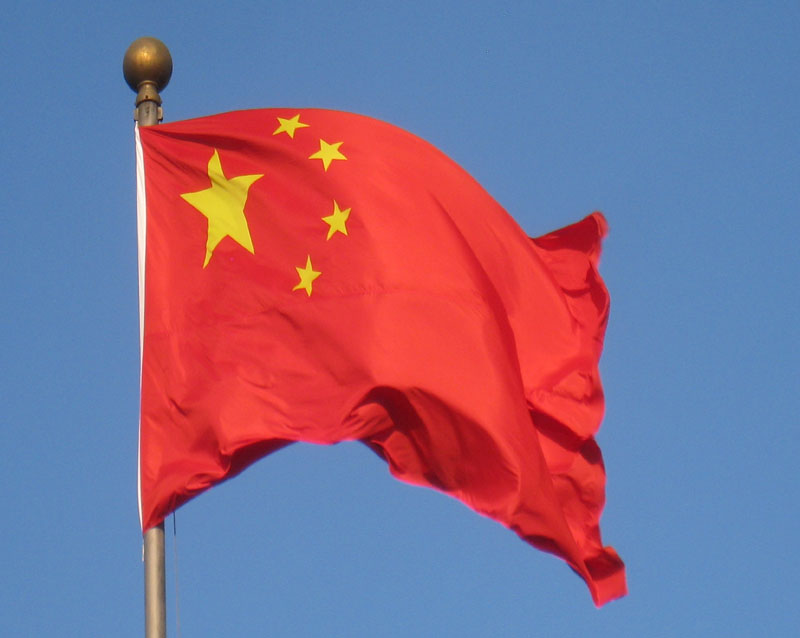 Two Chinese navy warships set sail on July 12 from the military port of Zhanjiang in Guangdong province, bound for Djibouti, on the horn of Africa, with an undisclosed number of military personnel on board. Their mission: to set up China’s first overseas military base.
Two Chinese navy warships set sail on July 12 from the military port of Zhanjiang in Guangdong province, bound for Djibouti, on the horn of Africa, with an undisclosed number of military personnel on board. Their mission: to set up China’s first overseas military base.
Although Beijing has been careful to officially term this a “logistics base”, the state-run Global Times ran an editorial which was far more direct. According to the editorial, published on the same day as the warships set sail for Africa, “Certainly this is the People’s Liberation Army’s first overseas base and we will base troops there. It’s not a commercial resupply point. It makes sense there is attention on this from foreign public opinion.”
And yet, the irony is that given Djibouti’s political and economic narrative of a tiny, barren nation, with almost no natural resources, a soaring unemployment rate, and vast expanses of semi-arid deserts, it is not exactly a prime location as a geopolitical playground.
That is, until you look at the map. Djibouti is sandwiched between Ethiopia, Eritrea and Somalia. Situated on the Bab el-Mandeb Strait, it sits at the gateway to one of the world’s busiest trade routes – the Suez Canal. An essential chokepoint from an energy, shipping and trade perspective, the Strait sees the passage of 10% of global oil exports.
For China, Djibouti marks the beginning of its maritime expansion as a military power to be reckoned with, though the official message is one in keeping with Beijing’s self-portrayal of a responsible global power.
Indeed, the Chinese Foreign Ministry itself has been quick to downplay the geopolitical significance of the base, with Ministry spokesman Geng Shuang insisting that the base would “help China fulfil its international obligations in conducting escorting missions and humanitarian assistance.”
Geng added, “It will also help promote economic and social development in Djibouti.” The base will also enable “fast evacuation” for any of the million Chinese citizens currently living in the Middle East and Africa, should the occasion arise.
Logistically and strategically speaking, Beijing has a point. The rash of coups and civil wars that continually beleaguer Africa has seen China rushing to the aid of its citizens on the continent more than once, with the collapse of Muammar Gaddafi’s regime in Libya (2011) and the outbreak of civil war in Yemen (2014) being the most recent incidents that come to mind.
China’s humanitarian and peacekeeping operations off the Somalian coast have run into troubled logistical waters often since the country began its escort missions in 2008.
Djibouti has, on multiple occasions, come to the PLAN’s rescue. It may be only about 20 miles from war-torn Yemen, and within destroyer range of the pirate-infested waters off the Somalian coast, but Djibouti is still one of the quieter countries in an otherwise politically volatile continent. Its location as a military outpost, therefore, makes sense for Beijing.
Economically speaking too, China has long been known to be a benefactor to a continent sorely lacking in aid and resource infrastructure. Between 2014 to 2016, Beijing laid the foundations for a more multilaterally focused agenda, assuring African leaders across the board that China’s policy in Africa would now encompass industrial cooperation, environmental protection and the reduction of poverty – key areas of concern for African leaders.
Indeed, for Africa, the most lucrative benefit has been China’s willingness to turn a blind eye to regimes which have been termed anywhere between politically corrupt to outright dictatorial. The same may be said of Djibouti, whose President Isma’il Omar Guelleh has been accused of the former charge by international monitors and his own political opponents.
In terms of financial aid, Chinese investment in Djibouti stands currently at $14 billion in infrastructure development. There are also cultural ventures, such as the new Confucius Institute in Djibouti City. Add to this the fact that China’s trade with this tiny African nation stood at $1.1 billion in 2014 – a figure that is roughly ten times that of the United States, the other major presence on the continent – and it is small wonder that China’s influence has grown by leaps and bounds in the country.
Thus far, the reasoning behind Beijing’s establishment of a base in Djibouti is sound enough. Geopolitically, however, it is a different story. Over the last few months, China has been working steadily to project itself as not only a responsible country, but a global power with considerable geopolitical influence.
Its ambitious plans for economic and infrastructural connectivity across Eurasia – encapsulated within the “One Belt, One Road” initiative (OBOR), as well as the “21st Century Maritime Silk Route” (MSR) strategy – could change Eurasian geopolitics as we know it, should these plans materialize.
Djibouti is the geographic lynchpin for both these schemes, besides being a vital entry point into the Indian Ocean Region (IOR) – another area where China has been expanding its presence.
India has every reason to sit up and take notice. Located at the northwestern edge of the Indian Ocean, Djibouti represents what is known as the “first pearl of a necklace”. Each “pearl” represents some form of Chinese military installation in a series of locations in friendly countries, along a “string”, which stretches from Southern China, through the Indian Ocean, to Africa and the Middle East – key regions from whence China imports much of its natural resources. There are, as always, two sides to this particular debate, but the point of interest here is not so much the debate itself, but the timing of Beijing’s move in Djibouti.
Some context might provide clarity. Tensions between the two countries have been building slowly but steadily over the last few months. New Delhi was never a supporter of either the MSR or OBOR, sharply rejecting the China-Pakistan Economic Corridor (CPEC), a flagship project of the “One Belt, One Road” initiative, on the grounds that it violates India’s territorial sovereignty. Indian Prime Minister Narendra Modi took matters a step further by staying away from the much-vaunted Belt and Road Forum (BRF) in May.
The Indian Navy has sighted Chinese submarines, destroyers and intelligence-gathering vessels in the waters of the Indian Ocean, in what China calls “anti-piracy patrols in international waters”, but which understandably concerns Indian naval officials. From June and throughout July, matters came to a head with the beginning of what is being called the longest border stand-off since 1962, over a narrow strip of plateau in Doklam.
The establishment of Djibouti also took place during the same week that the Chinese aircraft carrier Liaoning made its first port of call outside mainland China. Sailing to dock in Hong Kong, the Liaoning travelled through the Straits of Taiwan. This voyage alone was loaded with innuendo – portraying China’s increasing strength and military capabilities to not just Taiwan but also to the people of Hong Kong.
It also comes in the wake of the recently concluded Malabar naval exercise held between India, the United States and Japan in the Bay of Bengal. On 17 July, the People’s Liberation Army conducted an 11-hour drill in Tibet, aimed at targeting enemy aircraft and tanks.
Though Prime Minister Modi recently met Chinese President Xi Jinping informally on the sidelines of the G20 Summit in Germany, a deadlock continues to prevail at Doklam plateau west of Sikkim. Meanwhile, Djibouti only serves to underline the fact that in a world where the projection of influence carries far greater weight than actual armed conflict, China is telegraphing a clear message of far-reaching power to its neighbour.
Courtesy: http://southasiamonitor.org/news/doklam-to-djibouti-beijing-sends-a-message/sl/24521





India must look at the PLAN base in Djibouti as an opportunity. This base is not the most secure as compared to the other bases close to the Chinese mainland. India must look to exploit this vulnerability in the event of a conflict in the Himalayas. Needn’t say more!
Not really.
This incident is recoiling back so badly on Peking that if they encourage a limited shooting match, then they would loose and loose a hell of lot of their prestige.